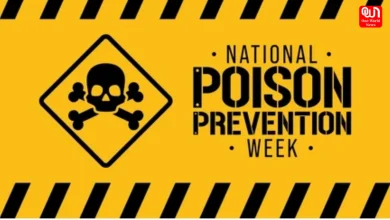IndiaagainstAbuse : From Body-Shaming to Rape Threats, online bullying needs serious attention

Let us take online bullying seriously, its time to act!
Social media plays a key role in our day-to-day life. It’s used in everything and it’s everywhere. We all use it, our friends use it, advertisers use it, celebrities, retail brands, etc. There are 7.8 billion people around the globe and the Internet has 3.42 billion users and if we talk about India in specific there are over 560 million internet users. With these kinds of numbers, all types of users will undoubtedly be subjected to some form of social media trolling during their usage.
Team One World News against Online Abuse.#oneworldnews #indiaagainstabuse #Rafale #RafaleInIndia pic.twitter.com/qAZPXqUDpb
— One World News (@Oneworldnews_) July 29, 2020
Online Bullying
A recent study by Child Rights and You (CRY), a non-governmental organization, found around 9.2% of 630 adolescents surveyed in Delhi-National Capital Region had experienced cyberbullying and half of them had not reported it to teachers, guardians or the social media companies concerned. Cases of cyberstalking or bullying of women or children increased by 36% from 542 in 2017 to 739 in 2018, data released recently by the National Crime Records Bureau (NCRB) showed. Meanwhile, the conviction rate for cyberstalking or bullying of women and children fell 15 percentages from 40% in 2017 to 25% in 2018. However, during the same period, the pendency percentage saw an increase of 1 percentage to 96%, the data show. Yet, the reported cases of threatening/blackmail fell 28.3% from 311 to 223 during the same period, which experts say is largely due to underreporting.

(There is a sharp increase)
Cyber harassment has manifested itself in many forms. While ‘online abuse’ is an umbrella term, which under the Information Technology Act, 2000, (IT Act) refers to the use of the internet to harass, threaten or maliciously insult a person, there are more serious forms of harassment that have perpetuated over the years. And this includes cyberstalking, trolling, malicious gossip and rumours, and threats of physical violence.
It seems like internet trolling happens everywhere online these days and it’s showing no signs of slowing down. But what exactly is internet trolling? How do trolls “behave”? Do they intend to harm, or amuse? What is the difference between Trolls and online abuse?
Trolls
Trolls are visitors who leave inflammatory comments in public comment sections. Whether they comment on blog posts or online news sites, they are looking to grab the attention of other visitors and disrupt discussion that would otherwise be about the page’s content. Trolls do this by posting comments that are hateful, racist, sexist or profane. Trolls might make the content, the author or even other commenters the target of their incendiary comments but there is a fine line in “Trolling” and “Online Abuse”.
Online Abuse
Whereas trolls focus on being a nuisance to online communities, cyberbullies target individuals. Rather than post generally inflammatory statements, they post vicious things about a single person with a goal of shaming or intimidation. This could take the form of mean-spirited messages, private pictures or private video concerning the individual the bully is targeting. They could post the information publicly, or send it only to their target as a form of taunting.
How “Online abuse” or “Cyberbullying” affects a person?
Cyberbullying causes significant emotional and psychological distress. Just like any other victim of bullying, cyberbullied individual may experience anxiety, fear, depression, and low self-esteem. An Individual may feel a range of emotions if they are the target of a cyber-bully. If you notice a change in the mood of your loved ones, don’t hesitate to reach out to lend a helping hand and support and most importantly report that particular profile from which your loved ones were getting bullied.
Cyberbullying laws in India
Section 67 of the Information Technology Act prescribes punishment for publishing or transmitting obscene material in electronic form for a term which may extend to five years and also with fine which may extend to ten lakh rupees.
Other than Section 67 of the IT Act following are the provisions of the cyberbullying laws in India:
Section 507 IPC – The section states that if anyone receives criminal intimidation by way of an anonymous communication then the person giving threats shall be punished with imprisonment for up to two years. By virtue of word anonymous the offence of anti-bullying and cyberbullying is included in this section.
Section 66 E of IT Act – The section prescribes punishment for violation of privacy. The section states that any person who intentionally violates the privacy by transmitting, capturing or publishing private pictures of others shall be punished with up to three years imprisonment or fine up to three lakhs.

(Its time to act)
How to Stop Bullying?
Do not respond or retaliate – Sometimes all the perpetrators are looking for is a reaction as according to them by responding to them you are giving them power over and you and if you don’t respond or retaliate you are in fact curbing their power. The best way is to disconnect yourself from this situation or distract the person who is bullying you.
Use technology – Most social media apps provide the option of either reporting a person or blocking a person who has been harassing you. This might not end the problem instantly but when the bully founds out that he has been blocked or reported he might end it.
Reach out for help – When the bully is not stopping and is continuously bullying you reach out to friends and family or simply file a police complain or to the best cyber-crime India lawyers for help. They will not only advise you but will help you in the entire procedure and will get out of the situation of cyberbullying. They will listen to you, process your situation, help and assist you to work through it.
Protect your account safe- Never share your passwords, Sounds familiar? To stop bullying do not give passwords to anyone not even to your closest friends. Always keep your phones and accounts password protected and do not let anybody to snoop through your sensitive information.
Have a news story, an interesting write-up or simply a suggestion? Write to us at info@oneworldnews.com







